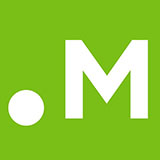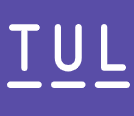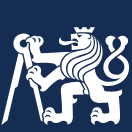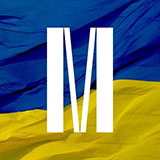Introduction
Masaryk University is a famous comprehensive university in the Czech Republic and the second largest university in the Czech Republic. It is located in Brno, the second largest city in the Czech Republic. The school is named in memory of Masaryk, the father of Czechoslovakia.
Overview
Number of students and faculty: As of 2024, the school has a total of 35,115 students, 2,200 academic staff and 3,000 administrative staff.
Course settings: It has 400 learning programs and rich courses covering natural sciences, social sciences, medicine, law, education, sports, economics, informatics and other fields.
History
Founding background: On January 28, 1919, after the collapse of the Austro-Hungarian Empire, Brno established its first university, Masaryk University. At that time, Tomáš Garrigue Masaryk, the first president of Czechoslovakia, made great contributions to its establishment. The school initially had a law school, a medical school, a science school and a liberal arts school.
Development history: In 1964, the School of Education was merged into the school, and it flourished again after November 1989. The School of Economics and Administration was established in 1990, the School of Information in 1994, the School of Social Research in 1998, and the School of Sports Research in 2001. In 2002, the construction of a new campus in Brno-Bohunice began, and the final stage of construction was completed in 2015.
School Strength
Faculty: It has a highly qualified team of teachers, including many internationally renowned scholars and experts. They not only enjoy a high reputation in the academic community, but also provide students with rich academic experience and teaching guidance.
Scientific research results: The school publishes 1,000 research papers each year, has 929 research projects and 500 funded projects under investigation, established excellent scientific research centers in the fields of life sciences, advanced materials and technology, and shared cutting-edge research facilities with six partner institutions. Its research station in Antarctica contributed to the Czech Republic becoming a voting member of the Antarctic Treaty System.
Institutional Nature
Public University.
Educational Philosophy
The school believes that education should not be limited by age or social status, actively supports research, and is committed to influencing the lives of people around with an open mind. It focuses on looking at the world from multiple perspectives, cultivating students' comprehensive abilities and innovative thinking, and strives to create a good learning and research environment for students to support their personalized development and growth.
Key Laboratories and Disciplines
Key Laboratories: The school has many advanced laboratories, such as the Central European Institute of Technology and other scientific research facilities, which provide strong support for scientific research in disciplines such as medicine and biology.
Key Disciplines: The School of Law is the pride of the school. It has achieved international honors based on standardized legal theories; medicine, chemistry, psychology, sociology, economics, computer science and other disciplines are also very strong and enjoy a certain reputation at home and abroad.
Faculty
The school has 10 colleges with more than 200 departments, colleges and workshops, as follows :
Medical College: Offers courses in nursing, health sciences, general medicine, stomatology, and dentistry.
Law School: Covers majors such as law, law and legal science, and theoretical legal science.
Science School: Includes mathematics, applied mathematics, geology, geography, geography and cartography, applied geography, biochemistry, chemistry, applied biochemistry, biology, anthropology, human biology, physics, applied physics, and secondary school teacher training.
Liberal Arts School: Offers majors such as philosophy, humanities, historical sciences, information and library science, linguistics, education, professional education, general theory and liberal arts and cultural history, secondary school teacher training, and primary school teacher training.
Education School: Offers courses such as education, primary school teacher training, special education, specialized education, secondary school teacher training, teaching assistant training, health science, art theory and history, music theory and history.
School of Economics: Covers majors such as economic theory, economic policy and administration, economics and management, systems engineering and informatics, and quantitative analysis of economics.
School of Information: including informatics, applied informatics, secondary school teacher training and other majors.
School of Social Research: including humanities, political science, international regional studies, sociology, social policy and social work, political science, human environment, media and communication and other majors.
School of Sports Research: providing majors such as sports and exercise, kinship anthropology, etc.
Ranking
560th in the 2024 CWUR World University Comprehensive Ranking.
400th in the 2024 QS World University Ranking.
Cost
Taking some of the school's undergraduate English-taught programs as an example, the tuition fee is about 2,200 euros/year.
Campus
Integration of historical buildings and modern facilities: While preserving and repairing historical buildings, the school continues to modernize libraries and build new research centers. For example, the construction of the Brno-Bohunice campus took nearly six years and the investment exceeded 5 billion Czech crowns. Its advanced laboratories provide excellent scientific research conditions for future doctors and biologists.
The cultural and academic atmosphere is strong: the school rebuilt the Scala Cinema in Brno and created a new cultural district. Its radio station serves students and the public. The university library and museum are also of great cultural value, providing students and faculty with a rich cultural activities and academic exchange venues.
-

The University of J. E. Purkyne in Ústí nad Labem
-

Mendel University in Brno
-

Charles University
-

Czech University of Life Sciences in Prague
-

University of South Bohemia in Ceské Budejovice
-

Metropolitan University Prague
-

Technical University of Liberec
-

Palacky University, Olomouc
-

Brno University of Technology
-

Czech Technical University in Prague
-

Mesoamerican University
-

Istmo University
-

Mariano Galvez University of Guatemala
-

Regional University of Guatemala
-

Galileo University
-

Francisco Marroquín University
-

Rafael Landívar University
-

University of the Valley of Guatemala
-

University of San Carlos of Guatemala
-

Technological Institute of Tlaxcala Plateau
-

Golfo University
-

Technological University of South Sonora
-

Technological University of Huejotzingo
-

Tizimín Institute of Technology
-

Chilpancingo Institute of Technology

